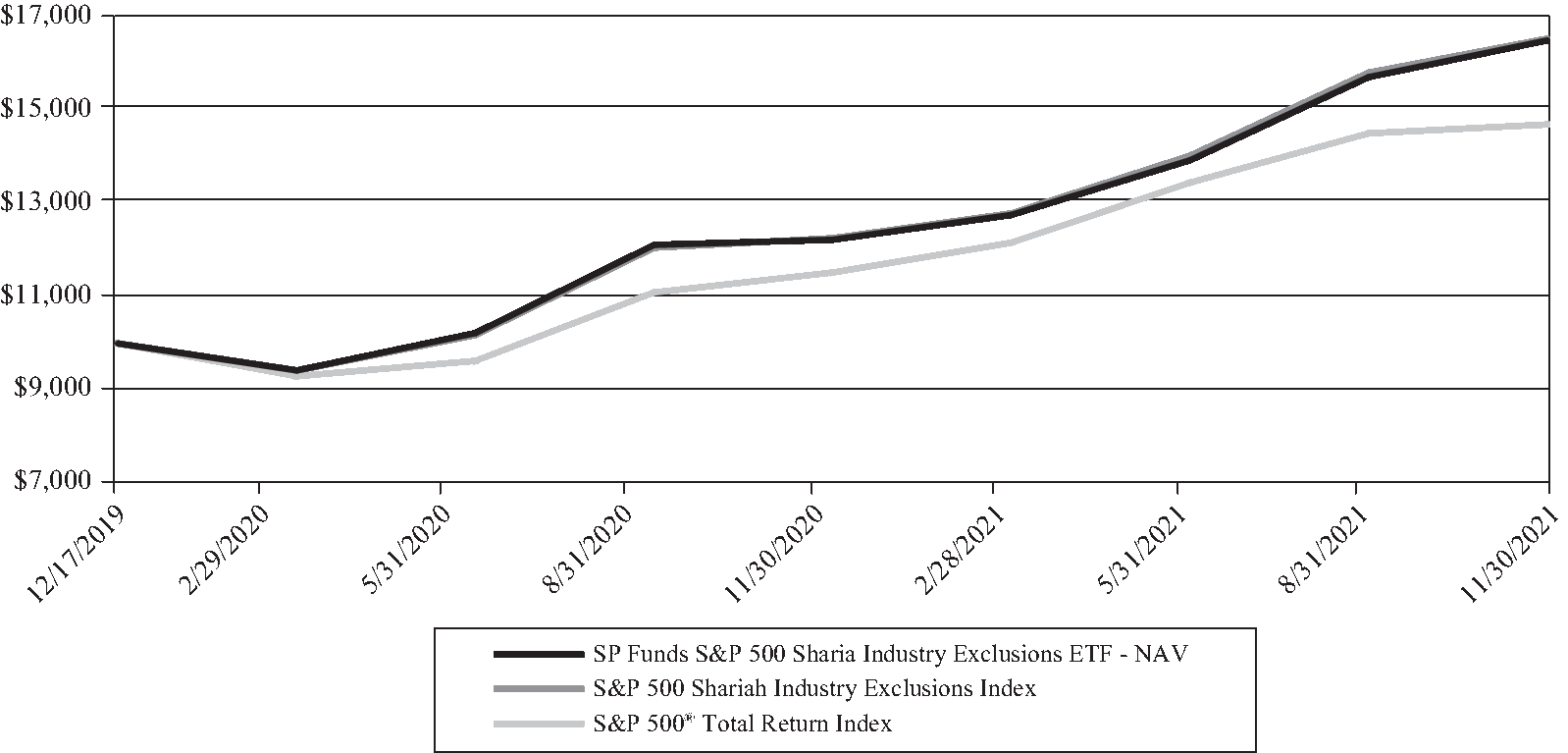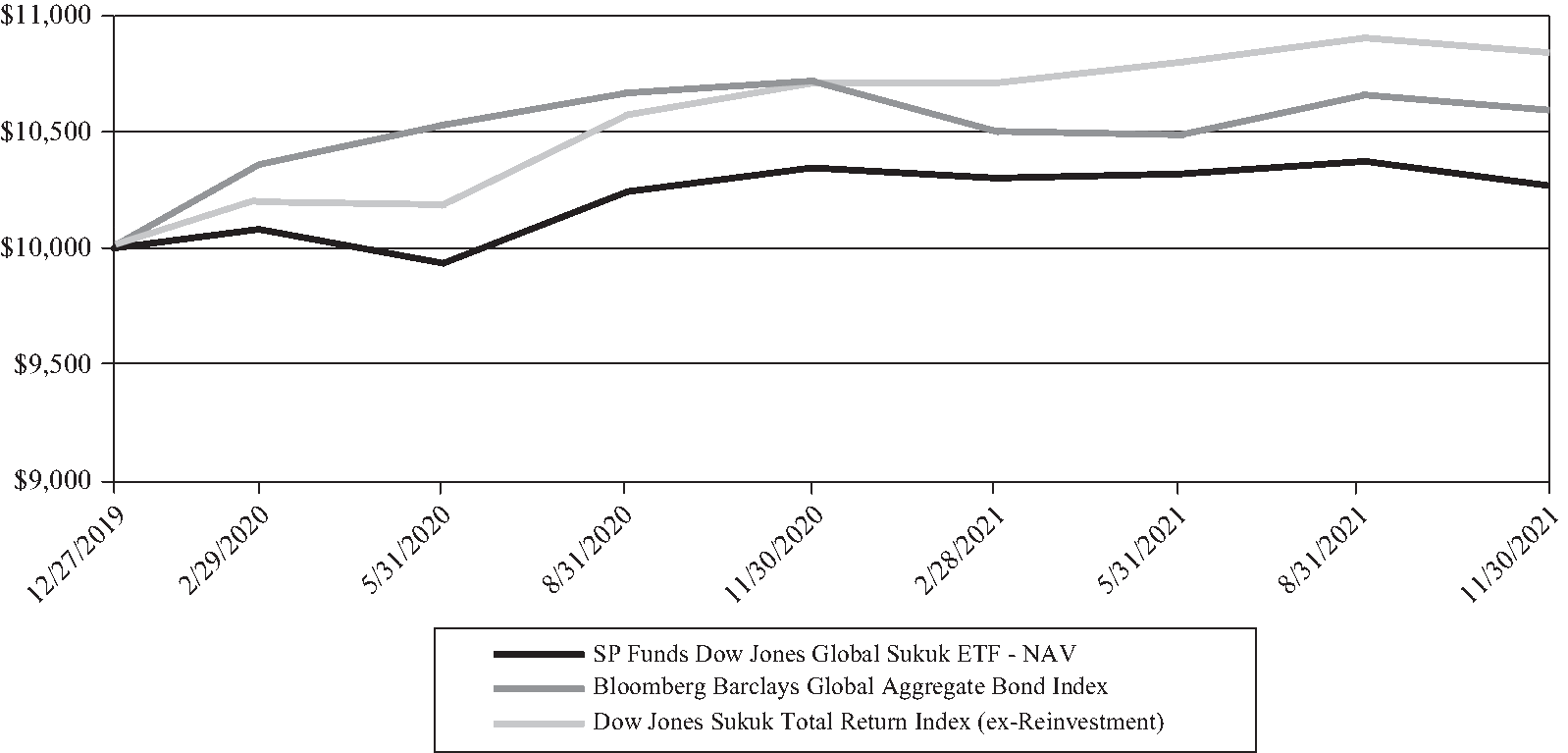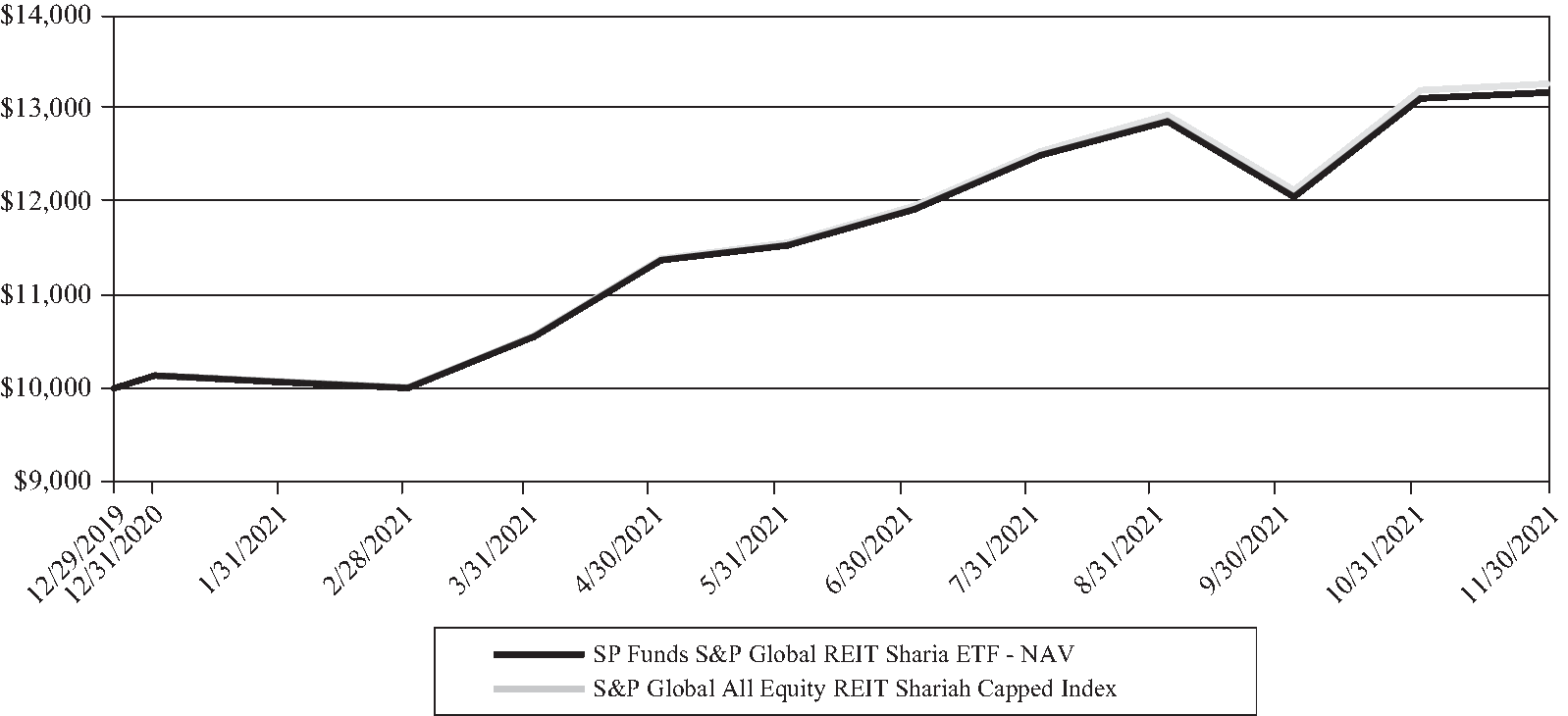Past performance does not guarantee future results.
Before investing you should carefully consider the Funds’ investment objectives, risks, charges and expenses. This and other information is in the prospectus. A prospectus may be obtained by visiting www.sp-funds.com. Please read the prospectus carefully before you invest.
Opinions expressed are subject to change at any time, are not guaranteed and should not be considered investment advice. Past performance is no indication of future results. Triple-digit or high double-digit performance is attributable, in part, to unusually favorable market conditions and may not be repeated or consistently achieved in the future. Performance, especially for short time periods, should not be the sole factor in making your investment decisions.
As with all ETFs, Fund shares may be bought and sold in the secondary market at market prices. The market price normally should approximate each Fund’s net asset value per share (NAV), but the market price sometimes may be higher or lower than the NAV. Each Fund is newer with a limited operating history.
Islamic religious law commonly known as Sharia has certain restrictions regarding finance and commercial activities permitted for Muslims, including interest restrictions and prohibited industries, which reduces the size of the overall universe in which each Fund can invest. The strategy to reduce the investable universe may limit investment opportunities and adversely affect each Fund’s performance, especially in comparison to a more diversified fund.
Equity securities, such as common stocks, are subject to market, economic and business risks that may cause their prices to fluctuate.
Investments in foreign securities may involve risks such as social and political instability, market illiquidity, exchange-rate fluctuations, a high level of volatility and limited regulation. Investing in emerging markets involves different and greater risks, as these countries are substantially smaller, less liquid and more volatile than securities markets in more developed markets.
Sukuk are financial certificates that are similar to conventional bonds but are structured to comply with Sharia law and its investments principles, which, among other things, prohibit charging or paying interest. Because no collateral is pledged as security for sukuk, purchasers of sukuk are subject to the risk that an issuer may not meet its payment obligations or that an underlying asset may not perform as expected or lose value. There may be times when the market is illiquid and it is difficult for the Sukuk ETF to make an investment in or dispose of sukuk.
A real estate investment trust (REIT) is a security of a company that invests in real estate, either through real estate property, mortgages and similar real estate investments, or all of the foregoing. The REIT ETF is expected to be concentrated in REITs. Through its investments in REITs, the Fund is subject to the risks of investing in the real estate market, including decreases in property revenues, increases in interest rates, increases in property taxes and operating expenses, legal and regulatory changes, a lack of credit or capital, defaults by borrowers or tenants, environmental problems and natural disasters.
The Dow Jones Sukuk Total Return (ex-Reinvestment) is designed to track the performance of global Islamic fixed income securities, also known as sukuk. The index measures an investment (excluding reinvestment) in U.S. dollar-denominated, investment-grade sukuk that have been screened for Shariah compliance.
J.P. Morgan Global Aggregate Bond Index consists of the JPM GABI US, a U.S. dollar denominated, investment-grade index spanning asset classes from developed to emerging markets, and the JPM GABI extends the U.S. index to also include multi-currency, investment-grade instruments.
The S&P 500® index is a market-capitalization-weighted index of 500 leading publicly traded companies in the U.S.
The Bloomberg Barclays US Corporate 1-5 Years Bond Index measures the investment grade, fixed-rate, taxable corporate bond market with one to five years left to maturity. It includes USD-denominated securities publicly issued by US and non-US industrial, utility, and financial issuers.
The U.S. dollar index (USDX) is a measure of the value of the U.S. dollar relative to the value of a basket of currencies of the majority of the U.S.’s most significant trading partners. This index is similar to other trade-weighted indexes, which also use the exchange rates from the same major currencies.
The S&P Global REIT serves as a comprehensive benchmark of publicly traded equity REITs listed in both developed and emerging markets.




